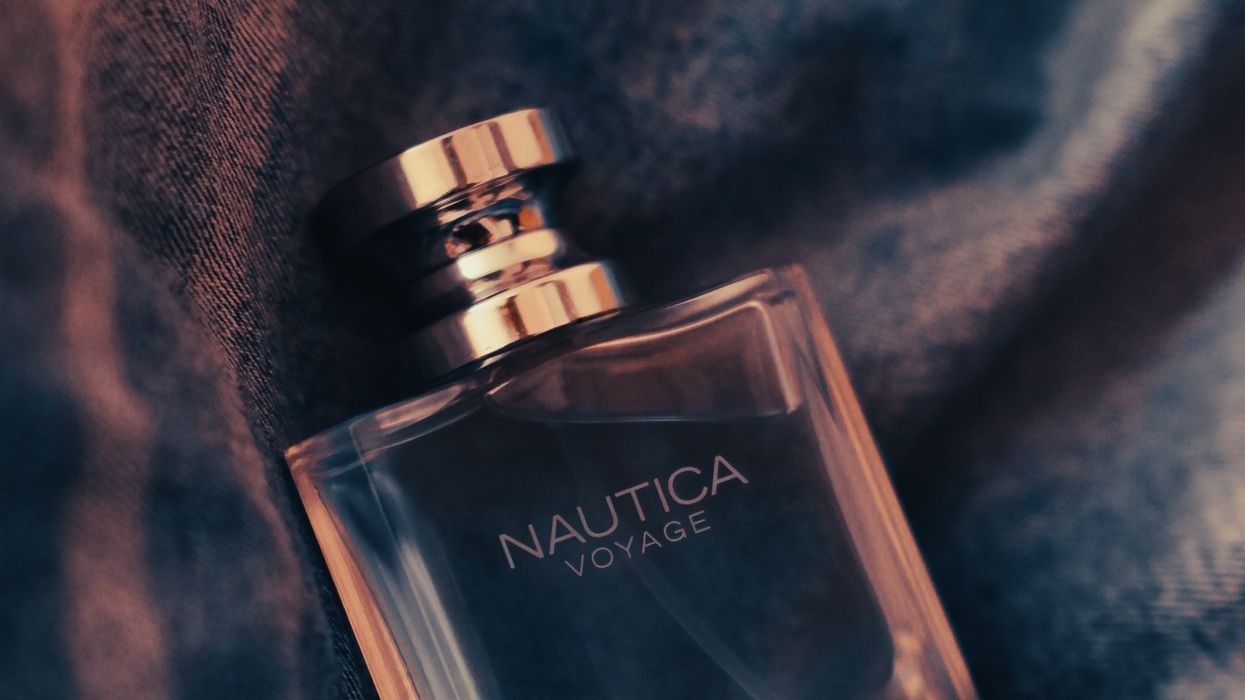Economy
08 February 2023
Coty sees 'fragrance index,' healthification boosting beauty
CEO Sue Nabi outlined why beauty can outperform a wider economic downturn.

Photo by Amrut Roul on Unsplash
CEO Sue Nabi outlined why beauty can outperform a wider economic downturn.

While many consumer goods categories are seeing pullback, demand for beauty products continues to be eye-catching.
That was evident on Wednesday, as Coty said it saw high-single-digit growth in the prestige fragrance market as a whole, and mid-single-digit growth in the mass beauty market as a whole over the holiday quarter.
“Demand for beauty products remains as strong as ever, fueled by consumers' desire for self expression, confidence building, and well-being,” Coty CEO Sue Nabi told analysts as the CoverGirl and fragrance maker reported quarterly results. “We are as confident as ever in our view that beauty remains a structurally attractive category, that will continue to outperform global economic growth.”
Beauty bounced back as people returned to in-person experiences. Now, demand is remaining high amid an economic slowdown. Nabi gave several primary reasons why the category is remaining resilient:
Fragrance index. Former Estee Lauder Chairman Leonard Lauder coined the “lipstick index” to describe how beauty sales rise during economic downturns. Coty sees the fragrance index taking shape during this period. “Consumers turn to fragrances as mood-boosting and affordable luxuries in an uncertain environment,” Nabi said. Fragrance shopping is heavily linked to brand names. People associate certain labels with certain scents. “This, in a way, makes the fragrance category probably the most immune when it comes to any kind of trade down or dupe phenomenon,” Nabi said. It comes after NPD reported fragrance sales spiked over the holidays.
Growth opportunities. Coty is in a reinvention cycle. By Nabi's reading, it just finished Stage 1, which is "fixing the surface." It has just reached Stage 2, which brings deeper innovation. “We are not yet in the mature phase of our growth evolution, with significant white space opportunities ahead, including skincare, China, Travel Retail, and prestige makeup," Nabi said.
Prestige. The company’s higher-end beauty products remain “affordable luxury” items, which are less expensive than other luxury goods. That will help to protect the category, and also bring less trading down to cheaper options.
Consumer beauty. This division of the company’s business “continues to perform from a position of strength, consistently offering consumers value through high-quality and desirable beauty products at an affordable price,” Nabi said.
Healthification. Today, beauty is not only about how products lead the outside world to perceive consumers, but also how they make them feel inside. “This industry is about things that make people look better or feel better, and this becomes something that's a non-negotiable for consumers. There, the limit is only us in terms of ability to innovate, to tell new stories, to bring new brands and new technologies to continue to make the consumer interested in our category, because this is a need to meet and not something that is nice to have.”
To be sure, companies must still navigate turbulence. Coty reported a revenue decline of 3% year-over-year for the quarter that ended on Dec. 31, 2022. This was driven by supply shortages of glass components needed for fragrance that led to product sell-outs when the sought-after products were bought up.
It shows that supply and demand are still moving back into balance.
But things are looking up to begin 2023. Nabi said the supply situation is already improving in the first weeks of this quarter, as demand remains robust. As a result, the company saw sequential sales growth for January.
The continuing demand and improving supply conditions led Coty to boost its outlook for the rest of the year. Coty is now expecting adjusted earnings per share growth of 20% to $0.35-0.36, an increase from previous guidance of $0.32-0.33.
Coty’s analysis comes a week after cosmetics brand e.l.f. Beauty posted 49% year-over-year sales growth for the holiday quarter, indicating that the high demand is helping success spread across brands and product subcategories.
On the Move has the latest from Amazon, Lovesac and more.
Ryan Cohen is executive chairman of GameStop. (Photo by Flickr user Bill Jerome, used under a Creative Commons) license.
This week, leadership is changing at GameStop, Sorel and Beautycounter. Meanwhile, key executives are departing at Amazon, Wayfair and Lovesac.
Here’s a look at the latest shuffles:
GameStop announced the termination of Matthew Furlong as CEO on Wednesday. A brief statement did not provide a reason for the firing.
With the move, Chewy founder and activist investor Ryan Cohen was named executive chairman of the video game retailer. Cohen will be responsible for capital allocation and overseeing management.
It came as the company reported a 10% year-over-year decline in net sales for the first quarter. Meanwhile, the company’s net loss improved by 62%.
In an SEC filing, GameStop further added this “We believe the combination of these efforts to stabilize and optimize our core business and achieve sustained profitability while also focusing on capital allocation under Mr. Cohen’s leadership will further unlock long-term value creation for our stockholders.”
Cohen was revealed as GameStop's largest shareholder when he disclosed a 10% stake in the retailer in 2020. GameStop went on to become a leading name in the meme stock rise of 2021.
Mark Nenow is stepping down as president of the Sorel brand in order to focus on his health.
After rising to the role in 2015, Nenow spearheaded a transformation of Columbia Sportswear-owned Sorel from a men’s workwear brand to a fashion-focused brand that led with a women’s offering of boots, sandals and sneakers.
“Mark led the brand to sales of $347 million in net sales in 2022,” said Columbia Sportswear CEO Tim Boyle, in a statement. “His leadership has been invaluable to this company, and we wish him the very best.”
Columbia will conduct a search for Nenow’s replacement. Craig Zanon, the company’s SVP of emerging brands, will lead Sorel in the interim.
Beautycounter appointed board member Mindy Mackenzie as interim CEO, succeeding Marc Rey. According to the brand, Rey and the board “mutually decided to transition to a new phase of leadership for Beautycounter.”
McKenzie, a former executive at Carlyle, McKinsey and Jim Beam, will lead the company as it conducts a search for a permanent CEO. Additionally, former Natura & Co CEO Roberto Marques will join Beautycounter’s board as chair.
As part of the transition, Nicole Malozi is also joining the company as chief financial officer. She brings experience from Tatcha, Nike, and DFS Group Limited.
Melissa Nick, a VP of customer fulfillment for North America at Amazon, will leave the company, effective June 16, CNBC reported. Nick joined the company in 2014, and oversaw a region that included nearly 300 fulfillment centers. After doubling its supply chain footprint during the pandemic, Amazon recently reorganized its fulfillment operations to take a regional approach, as opposed to a national model that often resulted in items shipping across the country.

Jon Blotner (Courtesy photo)
Steve Oblak will retire from the role of chief commercial officer at home goods marketplace Wayfair. With the move, Jon Blotner will be promoted to chief commercial officer.
"Steve has served as a critical part of our leadership team and played a pivotal role in Wayfair's growth, helping us grow from a $250 million business when he joined to $12 billion in net revenue today,” said Wayfair CEO Niraj Shah, in a statement. “He oversaw countless milestones, from helping to launch the Wayfair brand as we brought together hundreds of sites into a single platform, to launching new categories, business lines, and geographies while overseeing our North American and European businesses, to leading our debut into physical retail.”
Blotner previously oversaw exclusive and specialty retail brands, as well as digital media at Wayfair. Before joining the company, he served as president of Gemvara.com prior to its 2016 acquisition by Berkshire Hathaway.
Furniture retailer Lovesac said Donna Dellomo will retire as EVP and CFO, and move to an advisory role, effective June 30. Dellomo was with Lovesac for six years.
Keith Siegner was appointed as the next EVP and CFO. He brings experience as CFO of esports company Vindex, as well as executive roles at Yum! Brands, UBS Securities and Credit Suisse.
Additionally, Jack Krause will retire from the role of chief strategy officer, effective June 30. His responsibilities will be divided between CEO Shawn Nelson and president Mary Fox.
“Since joining Lovesac, Jack has played an instrumental role in transforming the Company into a true omni channel retailer by helping expand our physical touchpoints and digital platform as we continue to disrupt the industry,” said Nelson, in a statement.
The National Retail Federation announced the addition of five new board members. They include: